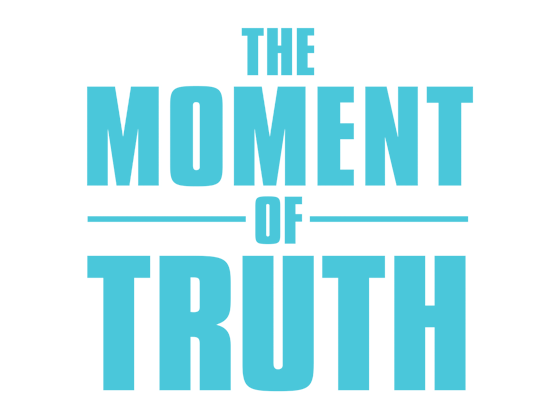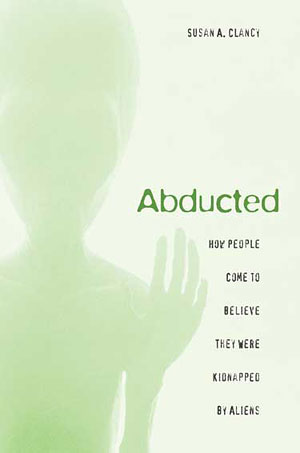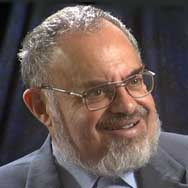by
Daniel Loxton, Oct 02 2012
[Questo post è disponibile anche in italiano nella versione online di Query, la rivista ufficiale del CICAP (Comitato Italiano per il Controllo delle Affermazioni sul Paranormale). Potete leggerlo qui.]
Steven Novella’s post last week on the complex topic of the ethics of speech was inspired by consideration of the ethics of “colloquial use of the term ‘crazy.'” This is an area of interest to me. I have often argued both for professional restraint in the things skeptics say and the manner in which we say them; and, for the importance of ongoing conversation on the ethics and efficacy of skeptical practice. But Novella’s post also had excellent timing, as I was already planning on touching on some of the thorny ethics at the intersection between skepticism and mental illness.
I should say at the outset that I have little in the way of solutions to offer. That’s natural and proper: I am not a mental health professional, so it should seem surprising (or reckless) if I had many answers—insofar as answers even exist. My professional experience in skepticism does suggest some troubling questions, however. As well, many people have personal or family experience with the tragedies of mental illness, serious addiction, or both. My own life has been no exception, so I confess that I feel acutely aware the topic.
That said, let’s look at some angles of interest.
Continue reading…
comments (43)
by
Michael Shermer, Aug 21 2012
What Really Happened on Fox’s TV show Moment of Truth:
Travis Walton responds to Michael Shermer
EDITOR’S NOTE: This article by Travis Walton explains his side of what happened on this dreadful Fox television show on which I also appeared and described in last week’s Skepticblog. To understand Walton’s explanation you should read that article first, but if you don’t have time the upshot of the story is that Travis Walton claims that on November 5, 1975 he was abducted into a UFO in an Arizona national forest during a logging job and that his co-workers witnessed the event. According to the late UFO investigator Philip Klass, Walton passed one polygraph test (published) but failed another (unpublished), and in his opinion Walton and his associates made up the story as an excuse for failing to complete the logging job on time. Walton’s side of the story is recounted in detail in his 1978 book The Walton Experience, later reissued as Fire in the Sky, the title of the 1993 film based on the book. —Michael Shermer
With the recent airing overseas of the canceled Fox television show, Moment of Truth some people may have been mislead into believing that some shocking new revelation about the famous logging crew UFO case has come to light. Quite the contrary. Now that the airing of the show ends the “gag clause” in my contract (with its $1 million penalty) I am free to reveal that Moment of Truth has used testing methods that the producers were informed from the beginning were long ago completely discredited by every polygraph expert, lie detector school, and polygraph professional association in existence. I’ll quote here specific condemnations of the show’s methods by four of the world’s most highly respected polygraph experts who agree: “the polygraph aspect of the show has no validity whatsoever.” I will reveal other blatant deceptions the show has committed. And I will provide details of how, after the show, I underwent two of the most rigorous new polygraph tests available anywhere in the world.
I should have seen it coming. I should have known better. But there were unique circumstances. Continue reading…
comments (37)
by
Michael Shermer, Aug 14 2012
A Moment of Truth (or not) for the most famous
UFO abduction case in history

Because I have a teenage daughter I am relatively current on what’s popular in pop culture. American Idol is the ne plus ultra in the reality television genre (don’t let yourself get hooked), and because Fox incestuously promotes its other shows I was vaguely familiar with The Moment of Truth, a game show in which contestants have to tell the truth under the watchful wires of a lie detector in order to win cash prizes. Contestants are put through a battery of questions while hooked up to the polygraph, but are not told whether the examiner determined from the readings whether or not they told the truth. Later, in front of millions of viewers and a live studio audience, with their friends, co-workers, family, spouses, or boyfriends and girlfriends (or ex’s) sitting on the set with them, they are asked the same questions again. After each answer a female voice says “That answer is…” and after a long pause a “true” means the contestant continues up the ladder to $25,000, $100,000, $200,000 all the way to half a million bucks. A “false” sends you packing for home.
One night a woman was faced with her husband and ex-boyfriend and was asked if she wished she had married the other guy. “Yes,” she said. “That answer is…true,” sounded the voice. She won the money but lost the husband. I remember thinking to myself, “you’d have to be a real pinhead to go on this show.”
On July 31, 2008, I appeared on The Moment of Truth (watch Part 1 on YouTube. I appear at about 7 min. 35 secs. in Part 2.) The contestant was Travis Walton, arguably the most famous alien abductee in Earth history. Continue reading…
comments (59)
by
Daniel Loxton, Jan 24 2012
 Working on refinements to my upcoming cryptozoology book with Skepticblog’s own Don Prothero (due out later in 2012) gave me a chance yesterday to dip back into Harvard psychologist Susan Clancy’s fascinating 2005 book about her studies of alien abductees, Abducted: How People Come to Believe They Were Kidnapped by Aliens. I thought I might share a couple of passages from the book here, partly because they dovetail so nicely with my own “Reasonableness of Weird Things” arguments.
Working on refinements to my upcoming cryptozoology book with Skepticblog’s own Don Prothero (due out later in 2012) gave me a chance yesterday to dip back into Harvard psychologist Susan Clancy’s fascinating 2005 book about her studies of alien abductees, Abducted: How People Come to Believe They Were Kidnapped by Aliens. I thought I might share a couple of passages from the book here, partly because they dovetail so nicely with my own “Reasonableness of Weird Things” arguments.
Clancy’s area of primary interest is not skeptical investigation of paranormal claims, but false memory. To perform an “honest broker” service as thorough and reliable guides to the evidence on paranormal topics, skeptical investigators are ethically obliged to seriously consider the (unlikely) possibility of paranormal phenomena. In her own work with abductees, Clancy’s obligations were different. She felt justified in taking it pretty much for granted that her subjects had not been kidnapped by space aliens. Abductees were, for Clancy, a proxy group to allow her to examine questions related to a separate population’s “recovered” memories of childhood sexual abuse.
Research into abuse is of course very complicated—and ethically fraught. It is surrounded by tension and the potential for harm for the simple reason that abuse really happens. By contrast, Clancy wrote,
…alien abductees were people who had developed memories of a traumatic event that I could be fairly certain had never occurred. A major problem with my research on false-memory creation by victims of alleged sexual abuse was the fact that it was almost impossible to determine whether they had, in fact, been abused. I needed to repeat the study with a population that I could be sure had ‘recovered’ false memories. Alien abductions seemed to fit the bill.1
Continue reading…
comments (27)
by
Brian Dunning, Dec 04 2008

Stanton Friedman
A reader wrote me on Facebook that he was listening to the “Paranormal Podcast”, another of the usual promoters of nonsense inexplicably allowed to remain in the Science & Medicine section of iTunes. The guest was Stanton Friedman, the principal author of the Roswell, Travis Walton, and Betty & Barney Hill UFO mythologies. Anyway, at 25 minutes into the episode (#56, but don’t bother listening as it’s only a 15 second blurb), Stanton mentioned that he “came across a piece on the Internet” the other day that got “40 flat-out false claims” about the Betty and Barney Hill story, and added with a condescending chortle that he “couldn’t believe it.” It was the online transcript of my Skeptoid episode on that story.
Continue reading…
comments (113)


 Working on refinements to my upcoming cryptozoology book with Skepticblog’s own Don Prothero (due out later in 2012) gave me a chance yesterday to dip back into Harvard psychologist Susan Clancy’s fascinating 2005 book about her studies of alien abductees,
Working on refinements to my upcoming cryptozoology book with Skepticblog’s own Don Prothero (due out later in 2012) gave me a chance yesterday to dip back into Harvard psychologist Susan Clancy’s fascinating 2005 book about her studies of alien abductees, 